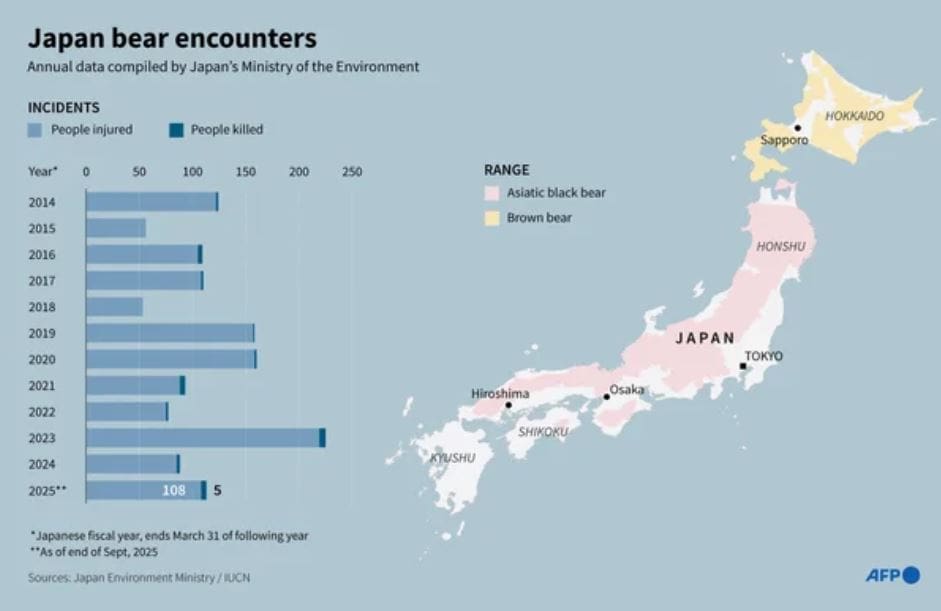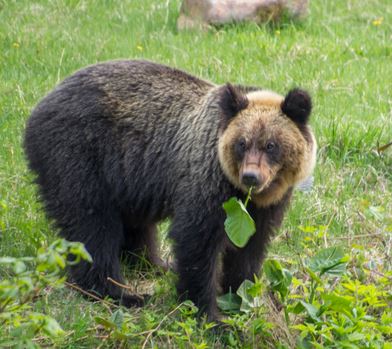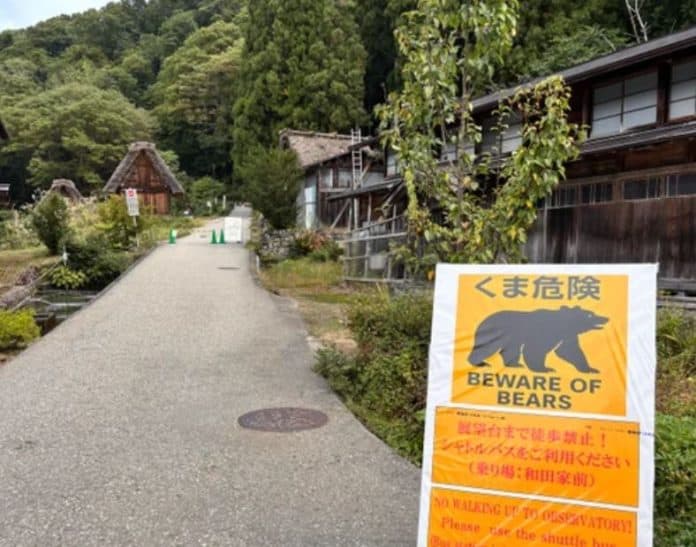An agitated grizzly bear entered a grocery store in central Japan on Tuesday evening, terrifying shoppers and injuring two people.
The incident took place in Gunma Prefecture, about two hours from Tokyo.
According to regional authorities, the adult bear – standing roughly 4.5 feet tall – attacked two men, one in his 60s and another in his 70s.

In an interview, he explained that the bear entered through the main door and roamed the aisles for about four minutes.
At one point, it nearly climbed into a glass display in the deli section, shattering part of it.
The bear then wandered into the fruit area, where it toppled a pile of avocados and stomped on them.
The store manager told local media that around 30 to 40 customers were inside when the bear appeared. Unable to find the exit, the bear grew increasingly agitated but eventually managed to leave on its own without further incident.
Bear Encounters on the Rise in Japan
Encounters with wild bears have become more frequent across Japan in recent years, even in populated areas. Experts attribute the rise to climate change, a shrinking human population, and habitat shifts.

A day earlier, a farmer in the same region was bitten and scratched by a bear protecting her cub near his home.
And on Sunday, a tourist from Spain was injured when a bear attacked him while he was visiting the scenic village of Shirakawa-go in central Japan.
Between April and September, more than 100 people in Japan have been injured in bear attacks, five of which were fatal.

Experts say the increase in bear incidents is closely linked to climate change, which has disrupted the animals’ natural food sources and driven them closer to areas with humans.
Koji Yamazaki, a biologist at the Tokyo University of Agriculture, explained that Japan’s rapidly aging and shrinking rural population has also played a role.
As villages empty out and farmland is abandoned, bears have been able to expand their territory into areas that were once populated.
While some conservationists see the return of wild bears as a sign that nature is recovering, it has also created new safety concerns for people.
Experts say Japan will need to develop new ways to balance wildlife conservation with the protection of local communities.








